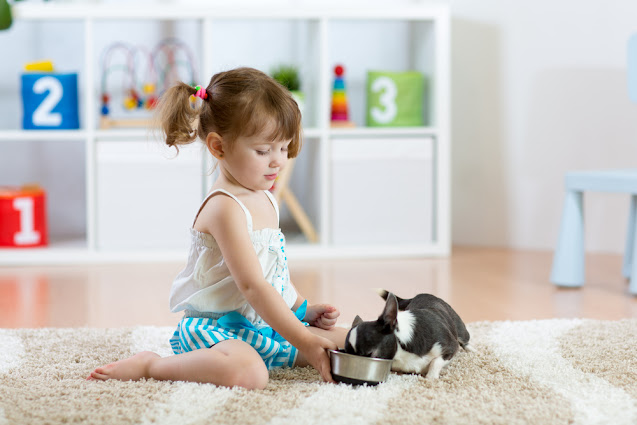How to Promote Positive Behavior in Toddlers
One of the most
important aspects of a child's nursery experience is encouraging positive
behavior. We have many tools at our disposal to assist children in growing and
becoming more emotionally intelligent. Promoting positive behavior in the early
years is critical for preparing children for a more formal educational setting
at school.
You have a lot of
responsibilities if you work in a nursery or early years educational setting.
Children must learn positive behaviors and social skills, as well as a solid
foundation in literacy and numeracy.
How do kids learn
about good behavior?
Young children learn
much more effectively by watching and participating in their education rather
than being told. This means that you should always be modeling positive actions
and behaviors.
There are three
primary ways to actively encourage positive behavior:
1. Play – During
structured or free play, children can demonstrate positive social and emotional
skills.
2. Interaction –
Participating in activities such as games allows you to model good social
behaviors.
3. Discussion –
Talking with students in situations such as story time can help them understand
positive behaviors.
Structures for positive
reinforcement are also required. When you tell a child that they are wrong or
naughty, you are not providing them with any constructive feedback. You should
tell them when they've been good and what they did well.
How can we encourage positive
behavior?
There are nearly 1.1 million
early years education places like Wimbledon daycare nurseries for
children in the United Kingdom. For young children in these settings, the
government has established a framework known as the Early Years Foundation
Stage (EYFS). It advises you as a nursery school teacher on what a child should
be taught, including positive behavior.
It takes careful planning and
strong execution to teach these positive outcomes to young children. Nursery
school is an important time for children to learn about these aspects of
themselves because they have a peer group around them as well as trained
educational practitioners like yourself to guide them through their learning.
The EYFS framework includes
guidelines for providing students with opportunities to develop positive
behaviors.
Empathy and comprehension
Empathy and understanding of
others can help a child become more resilient and open to others. It may take
some time for a child to learn to see the world through the eyes of others, a
concept known as the theory of mind (ToM). It will be easier for children to figure
out when you, as a teacher, model empathy and talk about feelings.
Children must understand and
recognize their emotions. This will assist them in recognizing themselves in others.
During a creative session, you can encourage your students to think about their
feelings and express those emotions through colors and shapes, and then ask
them to explain how their work relates to a feeling they have.
Communication that is unambiguous
Communication with young children
is not always easy. You must demonstrate clear communication to them so that
they will understand how to confidently ask for what they want, such as going
to the toilet or needing assistance with their work.
When you ask a child to do
something, make sure your instructions are simple. Rather than "tidy away
the books," "replace the books on the shelves with the other
books" will yield a more predictable result. When speaking, make an effort
to look the child in the eyes whenever possible.
Rewarding behavior
We've already established that
children enjoy being rewarded for their efforts. Being yelled at and punished
is ineffective, especially with young children. Encouraging good behavior
always produces better results.
You can make a rewards chart for
your students in your classroom. Make it abundantly clear what a reward can be
given for, such as completing work on time, saying please or thank you,
assisting others, and so on. Give a point, a sticker, or something similar for
each parameter, and every week, award a certificate to the student with the
highest score in the class.




Comments
Post a Comment